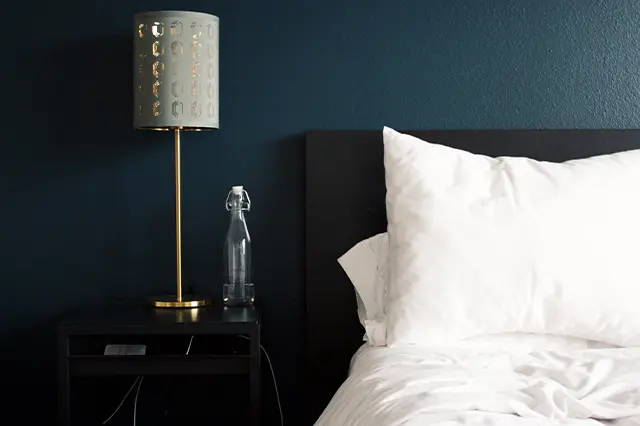
The Hidden Costs of Bed Bug Infestations: Financial and Emotional Impacts
Bed bugs can be a nightmare for any property owner or renter. While it’s difficult to quantify the emotional cost of an infestation, the financial burden of these pests cannot be ignored. Aside from direct treatment costs, there are also hidden expenses that can add up quickly and have serious consequences. In this blog post, we’ll explore the hidden costs of bed bug infestations, from rental losses to psychological effects. You’ll learn why bed bug infestations can have a major financial and emotional impact—and what you can do to protect your home and yourself from these parasites.
The financial costs of bed bug infestations
The financial costs of bed bug infestations can be significant. Treatment and removal costs can range from a few hundred dollars to several thousand, depending on the severity of the infestation. In addition, bed bugs can cause damage to furniture and personal belongings. And if you have to move out of your home during treatment, you may incur additional expenses, such as temporary housing costs.
All of these costs can add up quickly, and they can be a financial burden for many families. If you’re struggling to pay for bed bug treatment, there are some resources that may be able to help, such as government assistance programs or charities. You can also talk to your landlord about possibly covering some of the costs.
In addition to the financial cost of bed bug infestations, there is also an emotional cost. Dealing with an infestation can be stressful and overwhelming. It can take a toll on your mental health and well-being. If you’re struggling to cope with an infestation, reach out for help from a mental health professional or support group.
The emotional costs of bed bug infestations
Most people think of bed bugs as nothing more than a nuisance, but the reality is that these tiny pests can have a major impact on your life – both financially and emotionally.
If you’ve ever had an infestation, you know just how frustrating and stressful it can be. Constantly worrying about whether or not you’re being bitten, trying to keep your home clean and free of clutter to prevent them from spreading, and dealing with the itchiness and irritation that comes with the bites themselves… it’s all enough to drive someone crazy!
And then there’s the financial cost. Treatment for bed bug infestations isn’t cheap, and if you have to replace any furniture or belongings that are beyond salvage, the cost can really add up. Not to mention the fact that bed bugs can negatively impact your ability to rent or sell your home.
All of this can take a serious toll on your emotional well-being. It’s not uncommon for people who are dealing with bed bugs to experience anxiety, insomnia, and even depression. If you’re struggling to cope with an infestation, don’t be afraid to reach out for help – there are resources available to support you through this difficult time.
How to get rid of bed bugs once they’ve infested your home
If you’ve found bed bugs in your home, don’t panic! Although they are difficult to get rid of, it is possible to eliminate them with the proper treatment. The first step is to identify where the infestation is originating from. This can be done by doing a thorough inspection of your sleeping area, including looking for any telltale signs of bed bugs such as small blood stains on your sheets or pillowcases. Once you’ve determined where the infestation is coming from, you can begin treating it.
There are a number of different ways to treat bed bug infestations, but the most effective method is to hire a professional exterminator. This is because they will have the experience and knowledge necessary to properly eliminate the infestation. If you’re unable to hire an exterminator, there are a number of DIY methods you can try, but these may not be as effective.
The most important thing to remember when trying to get rid of bed bugs is that persistence is key. It may take several treatments before the infestation is completely eliminated, so don’t give up if you don’t see results immediately. With patience and perseverance, you will eventually be able to get rid of these pesky pests for good!
The cost of bed bug treatment
The cost of bed bug treatment can be significant, depending on the severity of the infestation. For minor infestations, home remedies and over-the-counter treatments may suffice. However, for more serious infestations, you may need to hire a professional exterminator. The average cost of hiring an exterminator is $1,200, although prices can range from $400 to $4,000, depending on the size of your home and the severity of the infestation. If you have a severe infestation, you may also need to throw away infected furniture and other items. This can add up to hundreds or even thousands of dollars in additional costs.
In addition to the financial costs of treatment, bed bugs can also take a toll on your emotional well-being. The anxiety and stress caused by an infestation can be debilitating, impacting your quality of life in a very real way. If you’re struggling to cope with an infestation, don’t hesitate to reach out for help from a mental health professional.
The cost of bed bug prevention
The average cost of a bed bug infestation can range from $500 to $4,000. However, the true cost of a bed bug infestation is much more than just the financial impact. Bed bugs can cause physical and emotional stress, which can lead to lost work days, lower productivity, and higher healthcare costs. In addition, bed bug infestations can damage your personal belongings and property value.
Bed bugs are difficult to prevent because they are small, elusive, and hitchhike their way into homes on luggage, clothing, and furniture. The best way to prevent a bed bug infestation is to be vigilant when traveling and to inspect your home regularly for signs of an infestation. If you suspect you have bed bugs, it is important to contact a professional pest control company immediately for treatment.
How to prevent bed bug infestations
Bed bugs are one of the most difficult pests to control. They are small, elusive, and can survive for long periods without feeding. If you think you might have bed bugs, it’s important to act quickly to prevent an infestation. Here are some tips on how to prevent bed bug infestations:
1. Inspect your home regularly for signs of bed bugs. Look for small, brownish bugs in cracks and crevices around your bed. Also check for small red or black stains on your sheets or mattress, which could be bed bug feces.
2. Vacuum your bedroom thoroughly every few days. This will help remove any bed bugs that may be lurking in your home.
3. Wash all of your bedding in hot water weekly. This will kill any bedbugs that may be hiding in your sheets or blankets.
4. Keep your bedroom clean and clutter-free. Bedbugs thrive in dirty environments, so making sure your room is clean will help discourage them from moving in.
5. Store clothes and other items that you don’t use often in airtight containers or bags. This will prevent bedbugs from hiding in them and coming out later to infest your home again.
6. Use a bed bug-proof mattress and box spring encasement. These special covers will keep bed bugs from getting into your mattress and box springs.
7. Use diatomaceous earth or other insecticides around the bed and in other hiding places, such as behind baseboards, to help kill any bedbugs that may be present. Doing this will also help prevent new infestations from occurring.
8. When traveling, inspect hotel rooms for bed bugs before settling in. Look for signs of bedbugs such as black or reddish brown spots on sheets or mattresses, as well as small bugs in cracks and crevices. If you find any signs of an infestation, switch to another room right away.
Following these tips can help you prevent an infestation of bed bugs in your home. If you do find signs of an infestation, it’s important to contact a pest control professional as soon as possible for treatment.
Conclusion
Bed bugs are a costly, pervasive problem that can cause serious financial and emotional distress. The hidden costs of bed bug infestations may not be immediately apparent, but they are real nonetheless. Fortunately, there are ways to prevent and treat these pests if you suspect an infestation. If you think your home or business may have bed bugs, it is important to contact a professional pest control company right away in order to minimize the damage they can cause—both financially and emotionally.

